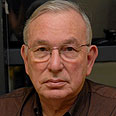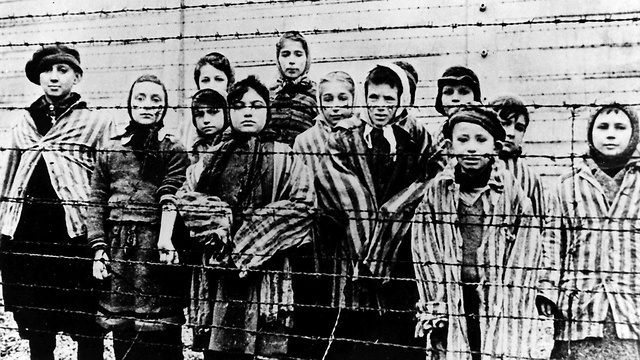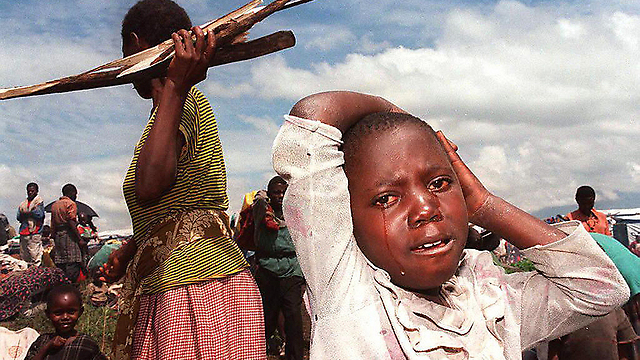
Our Holocaust, their genocide
Op-ed: The generic term ‘holocaust’ is being used in common popular discourse to describe many of the atrocities committed around the world. Will persistent historians succeed in teaching the world that the annihilation of Jews was a unique act? Probably not. In a few years’ time, the details will get lost in the sea of oblivion.
At the same time, an accompanying voice said that the Holocaust should be seen as a warning against the satanic component in the nature of man and society. The devilishness could reemerge given a combination of rare, but not impossible, conditions. Jews won’t be its only victims.
These two messages don’t contradict each other, but the awareness of the masses seems to have trouble accepting them without one pushing the other one aside. Zionist PR tends to emphasize the unique message that brings Israel great profits, but the impact of our disaster has been growing weaker with the passage of time and the occurrence of other atrocities. The universal message has pushed the particular message aside. The Holocaust has become yet another genocide, one of many.
Let me try to describe the process: At first, attention was drawn to the fact that the Nazis murdered not only Jews, by also Gypsies, homosexuals and mentally ill people. Later on, people began wondering about the real difference between the extermination of the Jews and other events termed as “genocide.”
The questions focused on historical events like the massacre of the indigenous peoples of the Americas by Spanish forces in South and Central America, the massacre of native Americans in North America, the massacre of Aboriginal Australians, the killing of millions of African slaves on their way to slave states in America, the mass annihilation of native Congolese by the Belgians, the massacre of Armenians by the Turks, the killing of at least one million people by the Americans in Vietnam, the extermination of the Tutsi by the Hutu in Rwanda, the starving to death of residents of the Biafra district in Nigeria, the systematic killing of minorities in Cambodia, and many other massacres in which the number of victims was far higher than the six million we lost.
Now, many of these events are categorized under the generic term “holocaust,” which is used in the common popular discourse in the world as an equivalent to “genocide.” The next stage is applying the term to inhuman things as well. People talk about a “cultural holocaust,” which is an intentional effort to erase the culture of a specific group, and even about the holocaust of animals slaughtered for food.
In light of the modified meaning of the term “Holocaust,” persistent historians have been trying to teach us that the annihilation of Jews was a unique act. There was no instance before the Holocaust in which a state had planned and systematically executed the murder of a public for reasons that cannot be rationally explained.
Colonialists eliminated millions of people to take over their lands and their nature resources; followers of one religion violently destroyed the believers of a competing religion; slaves dropped like flies on ships transporting them from Africa; nations slaughtered their neighbors for fear of being attacked by them; and tyrants murdered to secure their rule.
None of these explanations applies to the Nazis’ actions. The Jews didn’t compete with the Nazis over material resources, they weren’t turned into slaves to make use of their labor force, they weren’t members of an exploitative class that had to be removed from power, and they didn’t hold a shared ideology that jeopardized the government’s worldview.
They were annihilated, according to the Nazi perception, to liberate humanity from animals who are not humans, but something between a human being and an ape. Precisely because of its particular resemblance to a human being, this creature, the Jew, can act like a virus, infiltrating the Aryan race’s healthy tissue. The difference between this creature and man is biological, it is unrepairable, and that’s why it has to be annihilated. Everything must be sacrificed for this sacred mission, they explained, even if the effort consumes resources needed to win the war.
Will these scholarly explanations succeed in clarifying to many people why the Holocaust is such a unique event? I doubt it. In a few years’ time, the details will get lost in the sea of oblivion. It’s very distressing. We mustn’t give up, but we must be prepared.



















